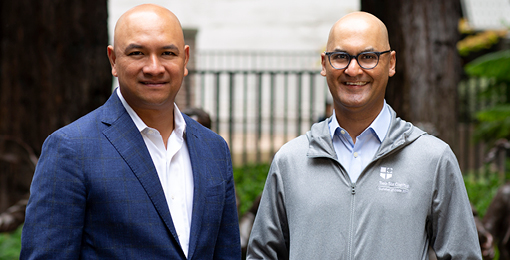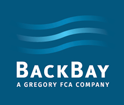
Communicating Disruption
Two Six Capital’s Ian Picache and Sajjad Jaffer discuss the genesis behind their effort to re-imagine private equity’s prevailing investment model and how they’ve brought this vision to the wider market
Tell us about the mission of Two Six Capital and the genesis behind the firm.
Ian: Very simply, our mission is to disrupt the private equity industry. We have aimed to do this by applying data science to an investment process that up to now has seen very limited technology advancement since the industry was formed.
Much in the same manner that hedge funds such as Renaissance Capital have leveraged data and analytics to drive returns in the public markets, we’re seeking to have the same kind of impact in the private capital marketplace.
Sajjad: The genesis of the firm was based on research from Wharton, and over 25 years of intellectual property informs our models and statistical analysis. In building out our firm, we’ve coupled this with investment, consulting and technology skillsets. So we’re not just bringing data science to bear. We’re bringing a team that understands the value proposition and role of private equity as patient, value-added capital; a team that understands the levers that drive profitable growth and support value creation; and dyed-in-the wool data scientists, who not only understand advanced analytics, but also bring a prying curiosity to look at data in new ways and deliver insights that may buck intuition.
What roles do you see data science playing in private equity?
Ian: The role of data science in private equity is end to end; it informs due diligence, value creation post-close, and exits.
For due diligence, it is about making sure the target company is “as advertised.” Looking at transaction-level data, we can granularly build up the business from its internal revenue drivers and use this to understand how the business operates. This can be done in as many segments, drivers or cohorts as required.
Sajjad: This goes well beyond just validating entry valuations; this analysis allows us and our co-investors to recognize opportunities and risks that are not obvious in the headline fundamentals. It informs everything from purchase price valuations to capital structure to unseen risks that may be a dealbreaker. It also provides a foundation for us and our co-investors to hit the ground once we assume control of the business.
Ian: For value creation, we can see opportunities to improve the business that wouldn’t be available without data. This could be anything from improving sales and marketing, SKU reduction, better budgeting or providing clarity around growth initiatives and resource allocation.
Sajjad: The board plays an important role in influencing data-driven business transformations. So in many ways, there’s a cultural component to what we do. We’re bringing an awareness of what’s possible through data to the highest levels of governance, which – from the top-down – bleeds into the rest of the organization and really drives an appreciation for evidence-based decision making across the enterprise.
Ian: That’s a good point. And just to extend on that, data science can also guide investors around timing to identify the peak opportunity or logical window within which to exit a business. It may be about fully realizing the growth potential of a given market opportunity or the point at which operational improvements are optimized and reflected in the trajectory of the business. But data science can deliver real clarity around the causality and durability of performance, while guiding the company’s future owners as to which levers will have the biggest impact for its next stage of growth.
Beyond making data science applicable and accessible to private capital, you’ve also taken a disruptive approach to how you put capital to work. Can you talk a bit about how the firm works with other sponsors as co-investor and how receptive other private equity firms are to your value proposition?
Sajjad: We have worked with over 20 different private equity firms around the world. They see us as a true value-added partner because they recognize the value of data science and the insights we can bring in due diligence and growing their portfolio companies. This is a real hot topic right now throughout private equity, particularly as many firms have discovered how difficult it can be to really infuse analytics into their processes. Simply hiring a data scientist, for instance, won’t do it.
Ian: It’s worth noting too that we invested heavily into our technology platform, which has been proven out and refined in diligence and value-creation assignments across a range of industries- consumer/ retail, TMT, business services, financial services, industrials. And we also have a team in place, as we mentioned, that bring to bear investment, consultant and data science skillsets, which we believe are necessary to have an impact.
Given that this is such a disruptive model, how has PR and content marketing helped Two Six get their message to the marketplace?
Ian: It’s been very important to help us achieve our goals. We hadn’t done any marketing or PR until this summer. We were able to grow the business organically since inception, and word-of-mouth following our early successes certainly helped us make inroads with many of the firms we’ve since worked with. But taking a strategic and integrated approach to marketing and communications has helped us get our name out to a wider universe of sponsors.
Sajjad: The key is to tell our story in a simple, digestible form without diluting the message. Content marketing, for instance, has been valuable to convey our narrative and include the nuance necessary to demonstrate not only the value of data science but how it applies to private equity. PR, on the other hand, has been valuable to both build relationships with reporters and create ongoing awareness around Two Six and our work with sponsors.
As PE firms get up to speed on data science, do you have any advice for firms wondering where to even start?
Ian: They can start by giving us a call!


